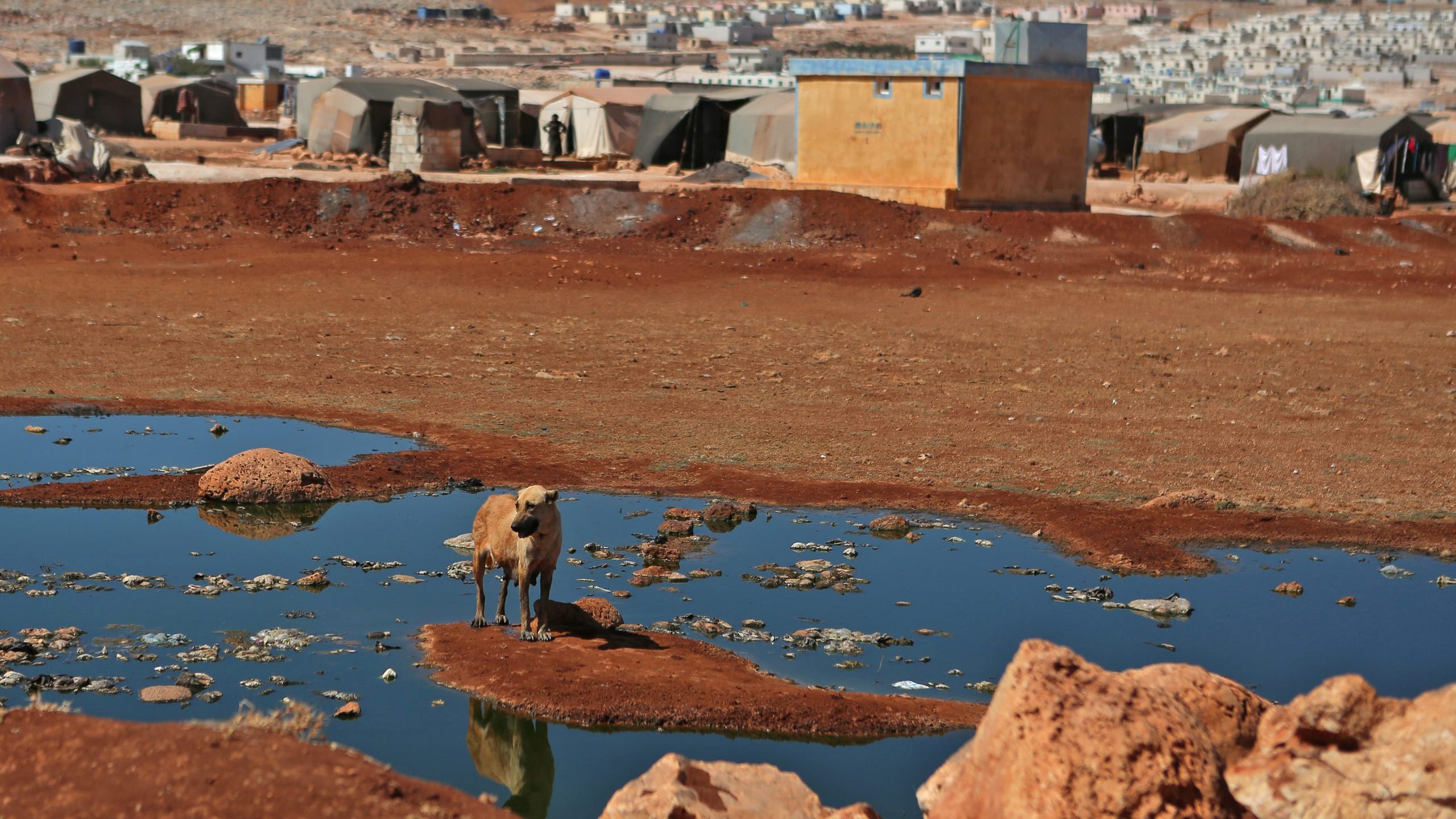Syria has been witnessing the return of the Cholera outbreak for two weeks to the war-torn country.
Pro-government al-Watan reports on Cholera Spread
The United Nations has warned that Syria will witness one of its harshest winters this year, due to the lack of fuel and electricity. The UN stressed Syria’s “urgent need” for about $200 million to fill the funding gap and meet Syrians’ needs for winter between October and March 2023.
“Some six million people will need humanitarian assistance to cope with the harsh winter conditions, an increase of 33 percent compared to last year,” said UN spokesman Stephane Dujarric.
“This year’s winter response strategy focuses on helping the most vulnerable, including those living in remote, high-altitude and highly vulnerable conditions. The latter includes at-risk demographics such as children, the elderly, pregnant women, people with disabilities, and people with chronic medical conditions,” Dujarric added.
“Among those who have been prioritized for assistance are displaced people living in tents or temporary shelters, including 800,000 people staying in tents in northwestern Syria, in areas controlled by terrorist organizations,” Dujarric said.
Dujarric said that the Syria Humanitarian Response Plan for 2022 suffers from a severe lack of funding. He explained that there is an urgent need for about $200 million to fill the funding gap.
State agency SANA stresses Health Minister’s call for the lifting of sanctions
The Minister of Health, Dr. Hassan al-Ghubash, stressed the need to take all the necessary measures to reduce the suffering caused by the spread of the Corona epidemic, the crises and wars that threaten the global health system.
In his speech during the second day of the 69th session of the WHO Regional Committee for the Eastern Mediterranean, Dr. Ghubash pointed out that “the world suffers from exceptional circumstances more than ever and needs to strengthen health systems to ensure the achievement of universal health coverage and the agenda of the sustainable development 2030.
Ghubash explained “the economic and health effects resulting from the terrorist war Syria is subjected to, the economic blockade and the unilateral coercive measures imposed on the Syrian people by some countries,” noting that “this affected the capabilities of the health sector directly to perform its tasks effectively.”
Ghubash stressed “the need to support Syria and lift these coercive measures and empower it to counter the difficulties and challenges of all the health issues, especially cholera, which has recently re-emerged in Syria,” expressing his hope that “the outcomes of the meeting will meet the challenges facing the global health system.”
Syria Praises WHO efforts, according to SANA
Minister Ghabbash stressed in his statement on emergency response presented during the 69th session of the WHO Regional Committee for the Eastern Mediterranean held in Cairo ” the importance of the essential and basic commitments adopted by the WHO within the International Health Regulations 2005 and its role in responding to emergencies, and in supporting member countries in preparing, responding and recovering.”
Pro-government al-Watan reports on Cholera Spread
The United Nations has warned that Syria will witness one of its harshest winters this year, due to the lack of fuel and electricity. The UN stressed Syria’s “urgent need” for about $200 million to fill the funding gap and meet Syrians’ needs for winter between October and March 2023.
“Some six million people will need humanitarian assistance to cope with the harsh winter conditions, an increase of 33 percent compared to last year,” said UN spokesman Stephane Dujarric.
“This year’s winter response strategy focuses on helping the most vulnerable, including those living in remote, high-altitude and highly vulnerable conditions. The latter includes at-risk demographics such as children, the elderly, pregnant women, people with disabilities, and people with chronic medical conditions,” Dujarric added.
“Among those who have been prioritized for assistance are displaced people living in tents or temporary shelters, including 800,000 people staying in tents in northwestern Syria, in areas controlled by terrorist organizations,” Dujarric said.
Dujarric said that the Syria Humanitarian Response Plan for 2022 suffers from a severe lack of funding. He explained that there is an urgent need for about $200 million to fill the funding gap.
Pan-Arab al-Araby al-Jadeed says the outbreak spilled to Lebanon
Lebanon has recorded its first death from cholera as cases surge after an outbreak of the extremely virulent disease in neighbouring Syria, the health ministry said Wednesday.
Lebanon has recorded 26 cases of cholera this month as the country struggles amid poor sanitation and crumbling infrastructure after three years of unprecedented economic crisis.
“The common point between these cases is that most patients are displaced Syrians,” Health Minister Firas Abiad said on Tuesday.
“The absence of basic services, like safe water and sewerage networks, in places where refugees gather, constitutes a fertile ground for the epidemic to spread in Lebanon.”
Syria has recorded 41 deaths from cholera, and over 700 cases, the country’s official SANA news agency reported Tuesday.
The United Nations warned earlier this month that the outbreak is “evolving alarmingly.”
Lebanon hosts more than a million refugees from Syria’s civil war, which broke out in 2011.
Most live in poverty, and their living conditions have worsened due to Lebanon’s economic woes.
Cholera is generally contracted from contaminated food or water and causes diarrhea and vomiting.
It can spread in residential areas that lack proper sewerage networks or mains drinking water.
Cholera can kill within hours if left untreated, according to the World Health Organization, but many of those infected will have no or mild symptoms.
It can be easily treated with oral rehydration solution, but more severe cases may require intravenous fluids and antibiotics, the WHO says.
Worldwide, the disease affects between 1.3 million and four million people each year, killing between 21,000 and 143,000 people.


